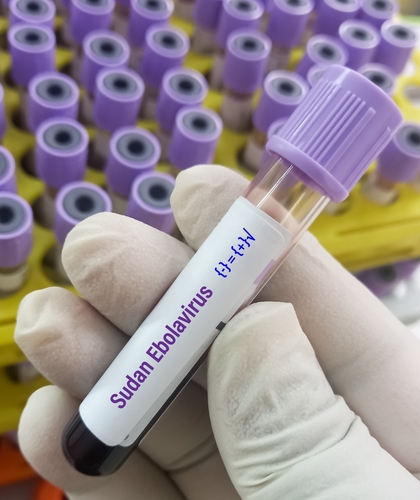
In use on macaques, at least, an experimental Sudan virus (SUDV) vaccine created by a National Institutes of Health (NIH) research group recently provided complete protection against a lethal case of SUDV.
According to findings published in The Lancet Microbe, the vaccine candidate – VSV-SUDV – was given to a small group of macaques that had earlier received the licensed Ebola virus (EBOV) vaccine. VSV-SUDV is based on the EBOV vaccine, which previously showed proof of concept. Of 11 total animals, six were vaccinated with VSV-SUDV, and five control animals were given VSV-MARV, a vaccine candidate for Marburg virus, which served as the study control.
After 28 days, a follow-up showed no adverse effects from the vaccines, and they were subsequently given lethal doses of SUDV. None vaccinated with VSV-SUDV showed any signs of the disease.
SUDV was first identified in 1976 and is today one of four viruses known to cause human Ebolavirus disease. Though less common than EBOV, SUDV offers similar fatality rates, and, to date, no treatment or vaccine is licensed for it. There are, however, several candidates in clinical and preclinical trials for potential use, of which VSV-SUDV is one.
During the NIH trial, four of the five control animals given the VSV-MARV vaccine instead developed clinical signs of Sudan virus disease. While this showed that pre-existing immunity to EBOV and VSV-EBOV provide limited protection from SUDV, the fact that one macaque from this group survived admittedly surprised the scientists, who announced they plan additional studies into possible cross-protective immune responses as a result.
VSV-SUDV was created by replacing a key EBOV protein in the Ervebo vaccine with a comparable protein from SUDV. It uses a modified animal virus that primarily affects cattle – the genetically engineered vesicular stomatitis virus (VSV) – to express a SUDV protein as a single-dose vaccine.




